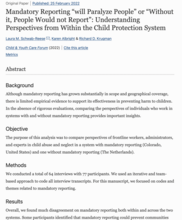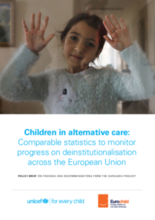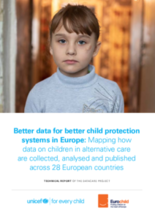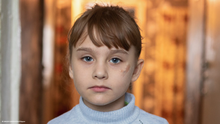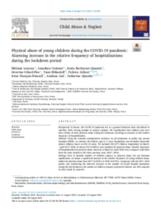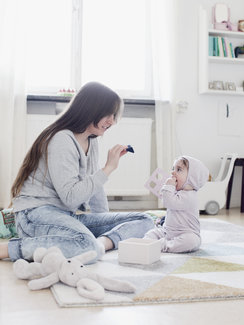

Displaying 41 - 50 of 423
- Job no: 550724
- Contract type: Consultancy
- Duty Station: Geneva
- Level: Consultancy
- Location: Switzerland
The purpose of this consultancy is to develop a ready-to-use, easy-to-contextualize workshop package, including PowerPoints, checklists and tip-sheets, case studies, and videos, to support the application of Pillar 4 in the Minimum Standards for Child Protection in Humanitarian Action: Standards to Work Across Sectors. Sectors of focus will include Education, Health, Food Security, Camp Coordination and Camp Management, and Nutrition.
On 02 May 2022, a range of stakeholders from the child care and protection area will gather in Brussels to discuss the need for trauma-informed practices as part of the “Safe Places, Thriving Children” final project even
A slim and chilling new book has ignited a public debate in France on the country's refusal to bring back hundreds of French children who were left in Kurdish camps in Syria.
The purpose of this analysis was to compare perspectives of frontline workers, administrators, and experts in child abuse and neglect in a system with mandatory reporting (Colorado, United States) and one without mandatory reporting (The Netherlands).
This basic awareness-raising course is for anyone who may come into contact with children and young people in alternative care settings. The aim of the course is to provide a brief understanding of trauma, the impact it can have on the lives of children and young people, and ways to support those who may be affected by it.
This policy brief summarises the policy context, as well as the key findings and recommendations from the analysis of the national responses to the DataCare survey across Europe. More detailed information can be found in the full research report: Better Data for Better Child Protection Systems in Europe: Mapping how data on children in alternative care are collected, analysed, and published across 28 European countries, which includes a full set of country profiles.
This report was conceptualised jointly by Eurochild and the UNICEF Europe and Central Asia Regional Office (ECARO) and builds on the Eurochild report on alternative care in Europe published in 2009. It also includes a full set of country profiles.
The DataCare Project was launched by Eurochild with support from UNICEF in March 2020. The project aims to carry out a comprehensive mapping of child protection data systems across the 27 Member States of the European Union (EU) and the UK. In addition to providing an overview of the situation of children in alternative care in Europe, this project aims to inform EU efforts to agree to comparable benchmarks and indicators to monitor progress in child protection reforms across Europe.
In France, the COVID-19 pandemic led to a general lockdown from mid-March to mid-May 2020, forcing families to remain confined. This study found a significant increase in the relative frequency of young children hospitalized for physical abuse from 2017 (0.053%) to 2020 (0.073%).

